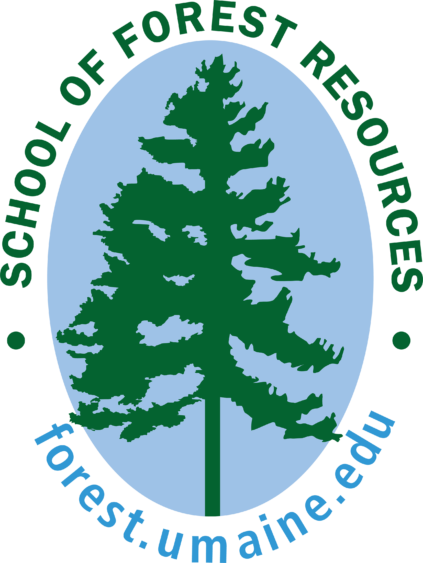Research Units
Maine is one of the country’s premier locations to study forestry and nature-based recreation and tourism. Ninety percent of the state is forested—the highest percentage in the nation. Reflecting the importance of forests to the state, our campus has state-of-the-art academic and research programs to ensure the sustainability of forests and their many uses.

The Climate Change Institute
The Climate Change Institute is an interdisciplinary research unit organized to conduct research and graduate education focused on the variability of Earth’s climate, ecosystems, and other environmental systems and on the interaction between humans and the natural environment. The Institute provides expertise on climate-related matters to the people and governments of Maine, the Nation, and beyond.
AFERP
The Acadian Forest Ecosystem Research Program (AFERP) was initiated in 1993 to investigate the ecological effects of silviculture methods inspired by patterns of natural disturbance in the Acadian forest. Since its inception, AFERP scientists have been engaged in multi-disciplinary research examining the influence of expanding-gap methods on a variety of ecological responses, including: forest stand dynamics, understory vegetation, downed woody debris (DWD), songbirds, amphibians, arthropods, and epiphytes.


Advanced Structures and Composites Center
The University of Maine Advanced Structures and Composites Center (ASCC) is a world-leading, interdisciplinary center for research, education, and economic development encompassing material sciences, advanced manufacturing, and engineering of composites and structures. Since its founding in 1996 with support from the National Science Foundation, the ASCC has financially sponsored more than 2,600 students, received 120 patents, welcomed over 30,000 visitors, created 14 spinoff companies, and honored with more than 40 national and international awards for research excellence.

Wheatland Geospatial Laboratory
The Barbara Wheatland Geospatial Analysis Laboratory in Nutting Hall was created and endowed with a generous grant from the Maine Timberlands Charitable Trust (MTCT). The new lab ensures that current and future SFR students have access to state of the art remote sensing and geospatial analysis research and teaching facilities. The lab includes 40 dual-monitor computer workstations with the latest hardware and software, furniture, and modern lighting.

Center for Research on Sustainable Forests
Formed to serve as an information clearinghouse for forest scientists and the public, the CRSF compliments UMaine’s School of Forest Resources, houses the Cooperative Forestry Research Unit, and has over 30 cooperating faculty members across the University. Additionally, the Center is part of the Northeastern States Research Cooperative – a competitive grants program that funds research on the 26-million-acre Northern Forests, which covers much of Maine, New Hampshire, Vermont and New York.

Cooperative Forestry Research Unit
The Cooperative Forestry Research Unit (CFRU) connects Maine’s forestry community with the University of Maine. CFRU scientists conduct applied research that provides Maine’s forest landowners, forestry community, and policymakers with the information needed to ensure both sustainable forestry practices and science-based forest policy.
For the past 40 years, the CFRU has shaped the evolution of forest practices in the state and advanced the principles of sustainable forest management. During periods of political controversy, the CFRU has provided crucial scientific information to Maine policymakers and helped the general public understand the implications of a wide range of forest resource issues.

Forest BioProducts Research Institute
The Forest Bioproducts Research Institute (FBRI) is UMaine’s commitment that Maine will become a regional, national and world leader in the transformation of resources to a valuable bio-economy. For over a decade, our team of researchers from across the university has been dedicated to advancing sustainable forest bioproducts in three major categories—fuels, chemicals and advanced materials.
Established to help enhance Maine’s forest economy, FBRI is Maine’s only research center that focuses on industrially-relevant chemical processing. We seek to understand the scientific underpinnings, system behavior and policy implications for the production and adoption of forest-based bioproducts, helping state and regional forest-based industries harness our available forest resources in new ways.

Maine Agricultural and Forest Experiment Station
The Maine Agricultural and Forest Experiment Station (MAFES) powers research inspired by Maine. The Station strives to enhance the profitability and sustainability of Maine’s natural resource-based industries, protect Maine’s environment, and improve the health of its citizens. The station supports faculty members who use cutting-edge tools to address emerging and longstanding challenges in agriculture and food sciences, forestry and wood products, fisheries and aquaculture, wildlife, outdoor recreation, and rural economic development. Other research programs strive to protect Maine’s environment, promote public health, and assist rural communities. The station’s use-inspired research has a proven track record for developing new knowledge that fuels innovation in Maine’s businesses and communities.
Senator George J. Mitchell Center for Sustainability Solutions
The Senator George J. Mitchell Center for Sustainability Solutions was created to address sustainability challenges – challenges of both improving the well-being of people and protecting the environment. Tackling these challenges requires the ability to “connect the dots” across economic, social, environmental and other factors that often influence sustainability problems. The Mitchell Center brings together teams of faculty, students and partners from many different fields to link knowledge with actions to help solve these thorny problems.


UNiversity Forests
The University Forests Office of the University of Maine is responsible for managing the forestlands owned by the University of Maine and the University of Maine Foundation. The office also coordinates research activities on the land. The forestland under management is comprised of four major parts:
1. Dwight B. Demeritt Forest: over 2,700 acres in Old Town and Orono immediately adjacent to the University campus.
2. Campus, MAFES, and Outlying Woodlands: approximately 3231 acres of land owned by the University of Maine and not part of the Dwight B. Demeritt Forest
3. Penobscot Experimental Forest: 3587 acres is located approximately 15 miles from the University campus in the towns of Bradley and Eddington.
4. Green Endowment Lands: 21 parcels of land accounting for 3775 acres, donated to the University Foundation for the benefit of the University of Maine.

